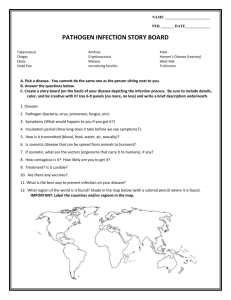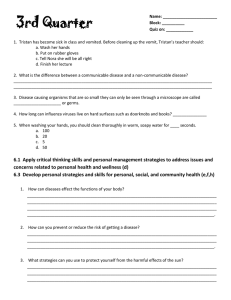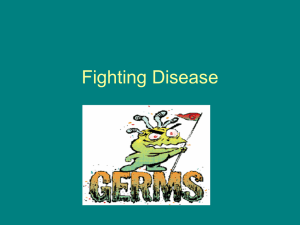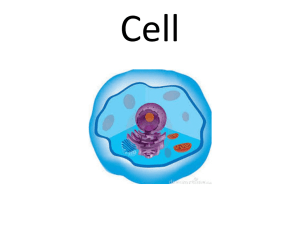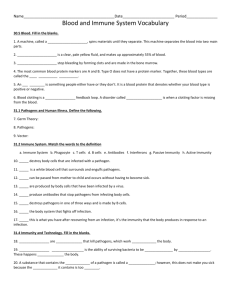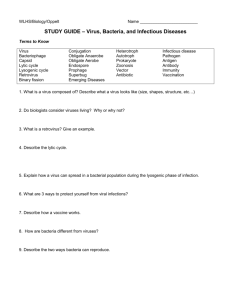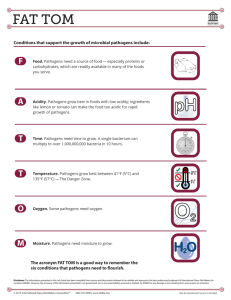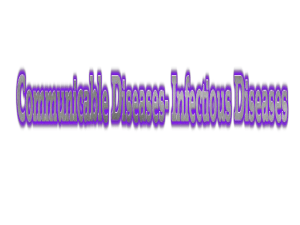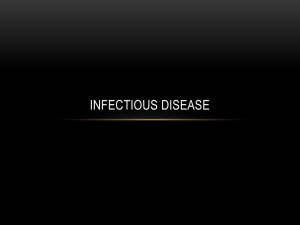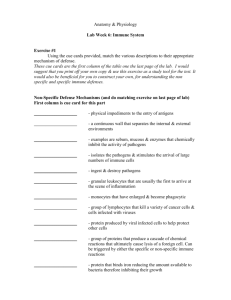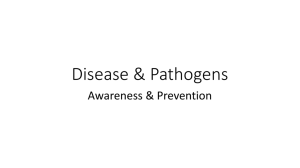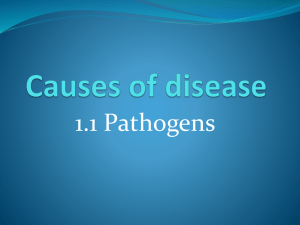6th Grade Health Notes—Diseases
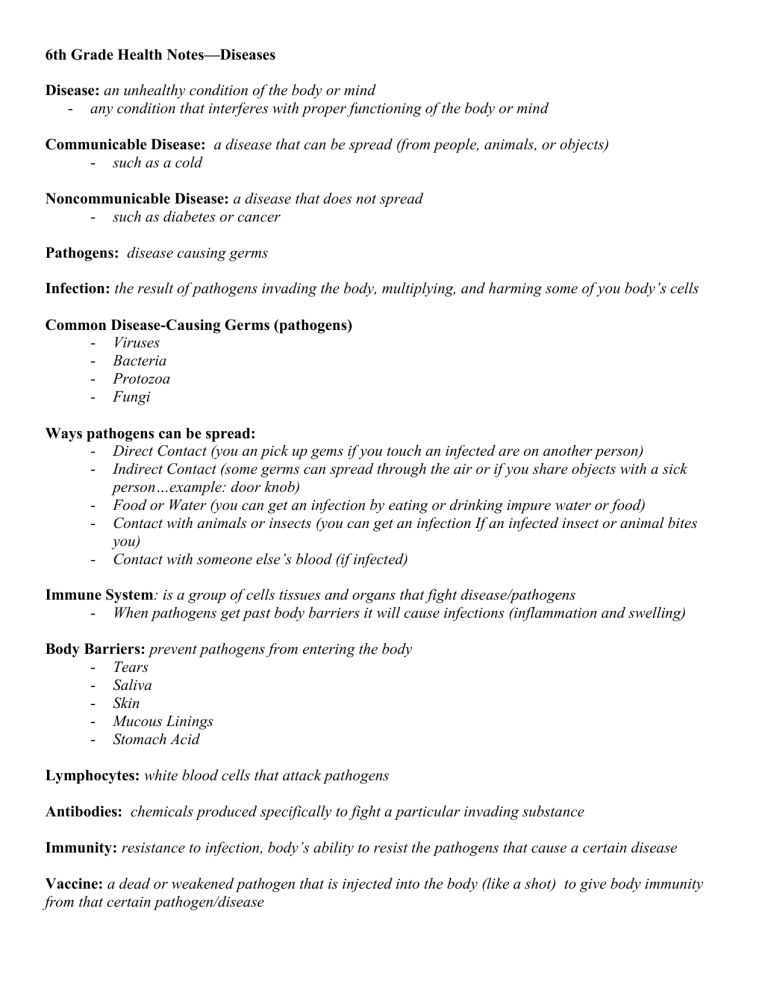
6th Grade Health Notes—Diseases
Disease: an unhealthy condition of the body or mind
any condition that interferes with proper functioning of the body or mind
Communicable Disease: a disease that can be spread (from people, animals, or objects)
such as a cold
Noncommunicable Disease: a disease that does not spread
such as diabetes or cancer
Pathogens: disease causing germs
Infection: the result of pathogens invading the body, multiplying, and harming some of you body’s cells
Common Disease-Causing Germs (pathogens)
Viruses
Bacteria
Protozoa
Fungi
Ways pathogens can be spread:
Direct Contact (you an pick up gems if you touch an infected are on another person)
Indirect Contact (some germs can spread through the air or if you share objects with a sick person…example: door knob)
Food or Water (you can get an infection by eating or drinking impure water or food)
Contact with animals or insects (you can get an infection If an infected insect or animal bites you)
-
Contact with someone else’s blood (if infected)
Immune System: is a group of cells tissues and organs that fight disease/pathogens
When pathogens get past body barriers it will cause infections (inflammation and swelling)
Body Barriers: prevent pathogens from entering the body
Tears
Saliva
Skin
Mucous Linings
Stomach Acid
Lymphocytes: white blood cells that attack pathogens
Antibodies: chemicals produced specifically to fight a particular invading substance
Immunity: resistance to infection, body’s ability to resist the pathogens that cause a certain disease
Vaccine: a dead or weakened pathogen that is injected into the body (like a shot) to give body immunity from that certain pathogen/disease
